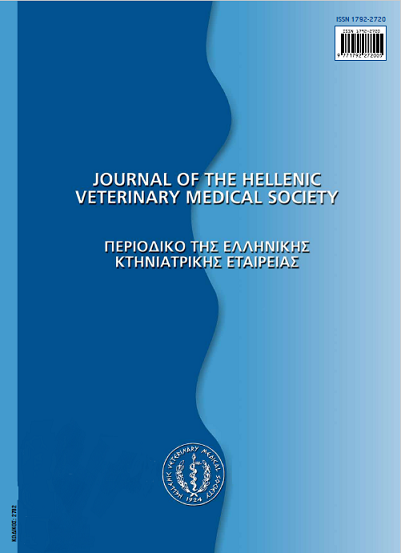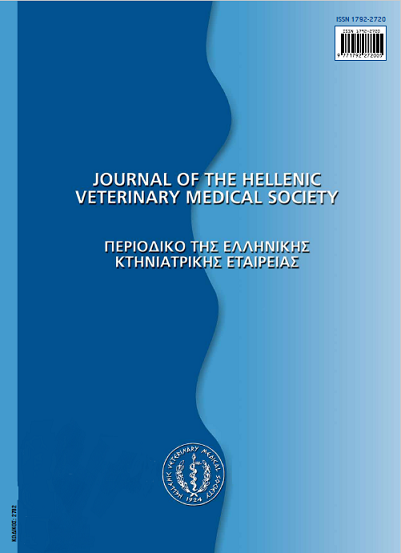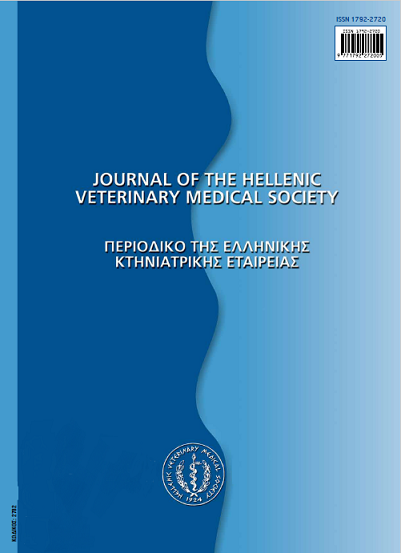Effect of sow diets supplementation with chelated trace minerals on their reproductive performance

Abstract
Trace minerals are constituents of proteins and enzymes that are involved in a variety of metabolic processes, having functional implications in growth, development, reproduction and health. Chelated minerals, are minerals bound to organic ligands, usually amino acids, providing higher levels of bioavailability compared to conventional inorganic mineral sources. In the present study, we investigated the effect of partial substitution of inorganic mineral sources with chelated minerals in sows’ diets, on three important reproductive parameters, the number of liveborn and weaned piglets and the wean-to-first service interval, in three Greek farrow-to-finish herds. Before initiation of the study the sows were on diets supplemented with 15 mg/kg feed Cu (from CuSO4), 125 mg/kg Zn (from ZnO) and 40 mg/kg Mn (from MnO). After exiting the farrowing facilities they were offered diets in which 93.3%, 36.0% and 62.5% of the supplemented Cu, Zn and Mn, respectively, originated from commercially available chelated minerals. For the last farrowing on inorganic minerals diet and the subsequent one or two (for 35.0% and 65.0% of the studied sows, respectively) on chelated minerals, each sow’s reproductive data (total number of parities, number of liveborn and weaned piglets and wean-to-first service interval) were recorded. The reproductive parameters, before and after the supplementation with chelated minerals, were compared in two mixed-effect linear regression models, for the number of liveborn and weaned piglets, and in a zero inflated negative binomial model for the weaning-to-first service interval. There was an improvement of the mean number of liveborn piglets after partial substitution of inorganic source of minerals with chelated minerals by almost half a piglet (P=0.015), whereas there was no effect on the total number of weaned piglets (P=0.15) and the wean-to-first service interval (P=0.65). The increase in the number of liveborn piglets may be directly attributed to improved embryo survival due to increased bioavailability of the organic minerals or indirectly to the beneficial effect of chelated minerals on sows’ hoof health, locomotor ability, feed intake and body condition.
Article Details
- How to Cite
-
SKAMPARDONIS (Β. ΣΚΑΜΠΑΡΔΩΝΗΣ) V., LISGARA (Μ. ΛΙΣΓΑΡΑ) M., PAPATSIROS (Β. ΠΑΠΑΤΣΙΡΟΣ) V., & LEONTIDES (Λ. ΛΕΟΝΤΙΔΗΣ) L. (2018). Effect of sow diets supplementation with chelated trace minerals on their reproductive performance. Journal of the Hellenic Veterinary Medical Society, 67(2), 123–128. https://doi.org/10.12681/jhvms.15631
- Issue
- Vol. 67 No. 2 (2016)
- Section
- Research Articles

This work is licensed under a Creative Commons Attribution-NonCommercial 4.0 International License.
Authors who publish with this journal agree to the following terms:
· Authors retain copyright and grant the journal right of first publication with the work simultaneously licensed under a Creative Commons Attribution Non-Commercial License that allows others to share the work with an acknowledgement of the work's authorship and initial publication in this journal.
· Authors are able to enter into separate, additional contractual arrangements for the non-exclusive distribution of the journal's published version of the work (e.g. post it to an institutional repository or publish it in a book), with an acknowledgement of its initial publication in this journal.
· Authors are permitted and encouraged to post their work online (preferably in institutional repositories or on their website) prior to and during the submission process, as it can lead to productive exchanges, as well as earlier and greater citation of published work.




